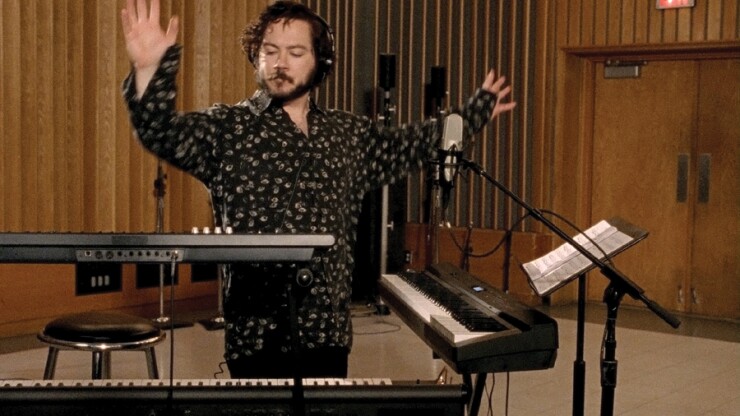



The savers who pumped up FirstBank's deposits over the past year are the people who live next door.
They stockpiled cash by living below their means and, being conservative types, they like to keep it in the bank.
"They're not flashy. They're not driving the fanciest car in the neighborhood," says Dave Baker, the chief operating officer at the $10.4 billion-asset Lakewood, Colo., company. "They sort of make money one day at a time and they're very good savers."
FirstBank aims to encourage more of this in its new advertising campaign.
One of its four television spots—all with plot twists worthy of O. Henry—is about a get-rich-quick scammer.
A bellhop carries luggage for hotel guests, vacuums a hallway and delivers room service. Then he drives a beat-up convertible to his other job, changes into a suit and comes on stage to a cheering audience."Who wants to be rich like me?" he asks. "Because I have the secret to"—and here the audience chants loudly in unison—"Never. Work. Again."
The tag line "There is no 'Get Rich Quick'" flashes on screen, followed by "Start saving," with FirstBank's logo and Web address.
The campaign, created by TDA Advertising & Design in Boulder, includes print ads that reinforce the theme. "Two simple steps to winning the lottery," says the headline for one. "1. Buy the lottery ticket. 2. Repeat 14,999,999 times."
David Rainwater, chief executive of the ad agency Mangan Holcomb Partners in Little Rock, says the campaign is so good he's envious. The storylines are fresh and the humor is well done.
"All banks basically do the same thing and have the same products. So the challenge is to create a brand that people have an affinity for, and I think advertising like this really does connect with the consumer," Rainwater says.
FirstBank decided to target what it calls "steady savers" because people are socking away significantly more than they did before the recession. "It's much easier to try to ride a trend that's already happening than to try to reverse a trend or create a new one," Baker says.
According to the Commerce Department, the personal savings rate is roughly 4 percent of disposable income, up from 1 percent in 2007. FirstBank got more than its share of the increase. Last year total deposits surged by $1.1 billion, a 13 percent gain from 2008.
Baker says the company—which is conspicuously healthy with abundant capital and few troubled loans—benefited from the "flight to quality." It opened a record number of new checking accounts for the year.
The goal is to keep the momentum going. Baker says FirstBank boosted ad spending by 20 percent last year and plans to stick with the elevated budget this year. "When others are cutting back, it's an opportunity," he says.
The campaign, which began in June, devotes three 30-second television spots to highlighting reasons to switch to FirstBank. In one, a frustrated keyboard artist storms out of a recording studio after getting to play only a snippet of jazz, because FirstBank just doesn't need more than a few notes. "Spend less time listening to on-hold music," says the closing message.
The others, touting mobile alerts, depict a fake doctor and a scary date that would be best avoided, both concluding with the message "Know about trouble before it happens."
Rainwater says the spots effectively illustrate tangible examples of FirstBank's customer service, and even if mobile alerts don't have broad appeal yet, promoting them conveys that the company is technologically advanced."Everyone says they're customer focused," Rainwater says. "But the way this bank says it makes me think they're serious about it, even though they're serving it up in a nonserious way."
Jonathan Schoenberg, the creative director at TDA, says he knows FirstBank, which has a 24-hour call center, is delivering on the promise in the ads. When creating the campaign, his team would dial in at all hours just as a test. "Every time we'd call they'd pick up on the first ring."





